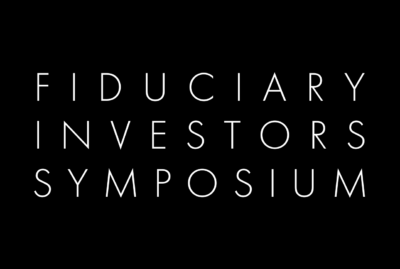
The Fiduciary Investors Symposium brings together global investors to highlight best practice investment strategy, governance and implementation and examine structural and systemic risks in the investment industry.
Filter by year
The Fiduciary Investors Symposium at Cambridge University brought together more than 70 asset owners from 15 countries to discuss asset owners responsibility to engage with policymakers, barriers to long term investing and risks including ESG, climate and cyber security. Brett Himbury, chief executive of IFM Investors revealed how an asset manager defines its behaviours and […]
Amanda WhiteApril 11, 2019
Institutional investors' investment strategy should be serving the China middle class and the dislocation from within Asia, according to Stephen Kotkin,Professor of History and International Affairs at Princeton University speaking at the Fiduciary Investors Symposium at Cambridge University. He explored what the geopolitical conflicts of the past can teach us about the future. He looked at some of the key points in history, how China, the European Union and the US have survived, and what it means for the future.
Amanda WhiteMay 17, 2019
The returns of long-term investors are driven by economic growth so it is difficult to ignore China as a big part of the future investment opportunities, a panel of experts told delegates at the Fiduciary Investors Symposium.
Amanda WhiteApril 18, 2019
Strategic tilting has added 1.1 per cent, or NZ$3 billion, to the New Zealand Super Fund’s reference portfolio over the past 10 years, David Iverson, head of asset allocation at the NZ$41 billion fund says. This is way above the expected return from the program which was set at around 40 basis points.
Amanda WhiteApril 17, 2019
Images from the Fiduciary Investors Symposium, Cambridge 2019, day three
Amanda WhiteApril 10, 2019
An overwhelming number of delegates at the Fiduciary Investors Symposium said the funds management industry was not doing well in innovationMartin Gilbert, who started Aberdeen Standard Investments in 1983 and is now chair, said industry participants needed to innovate and disrupt themselves.
Amanda WhiteApril 10, 2019
Institutional investors are navigating the different risks that can impact their portfolios in different ways, explained chief risk offers speaking at the Fiduciary Investors Symposium in Cambridge. Arjen Pasma, chief risk officer at Dutch asset manager PGGM noted how risks span investment risk, counterparty risk, liquidity risk and ESG risk. Measuring ESG risk in the manager’s large allocation to private markets where each deal is scored on ESG and climate risk is particularly important, he said.
Sarah RundellApril 10, 2019



